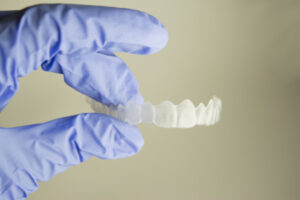From The Desk Of Dr Chrispens: Autoimmunity And The Health Of The Mouth

Autoimmunity is much more widespread than most of us realize. The “Office of Women’s Health” states that 23.5 million people have at least one autoimmune disease and that women are at greater risk. The current feeling is that heredity and hormones often play a role in the onset and symptoms of the autoimmunity disease. There are more than 80 different autoimmune diseases, of which several exhibit signs in the mouth. The number of people with autoimmune diseases is a growing challenge that is difficult to diagnose.
The second most common autoimmune disease is Sjogren’s Syndrome, which exhibits signs in the mouth. About 90% of the patients diagnosed with Sjogren’s are women. About 3% of all women, over the age of 50, are affected by this autoimmune syndrome. Some of the patients diagnosed with Sjogren’s Syndrome develop a form of rheumatoid arthritis. Sjogren’s attacks several glands of the body, especially the salivary glands. This situation leads to dryness of the eyes, mouth and other body areas. The lack of saliva leads to trouble eating and swallowing, causes a decrease in taste, difficulty speaking and increases tooth decay. People with Sjogren’s Syndrome may also have an increase in fungal infections (candidiasis). It is very important to clean the mouth thoroughly twice a day and increase dental visits.
Another autoimmune disease that affects the mouth is Crohn’s Disease, a disease of the GI tract. Up to 29% of Crohn’s patients will get symptoms in the mouth. The symptoms include, but are not limited to, swelling of the gums, ulcers in the mouth and swelling of the lips. Other autoimmune diseases that show up in the mouth tissues are Systemic Lupus Erythematosus, Psoriasis, Hashimoto’s and Scleroderma.
With the increase in autoimmunity diseases, and the effects in the mouth, it is important to have frequent dental exams and continuing dental hygiene care. Please ask questions during your dental exams if you feel you have any of the symptoms, especially dry mouth. If you’d like more information, please CLICK HERE.


